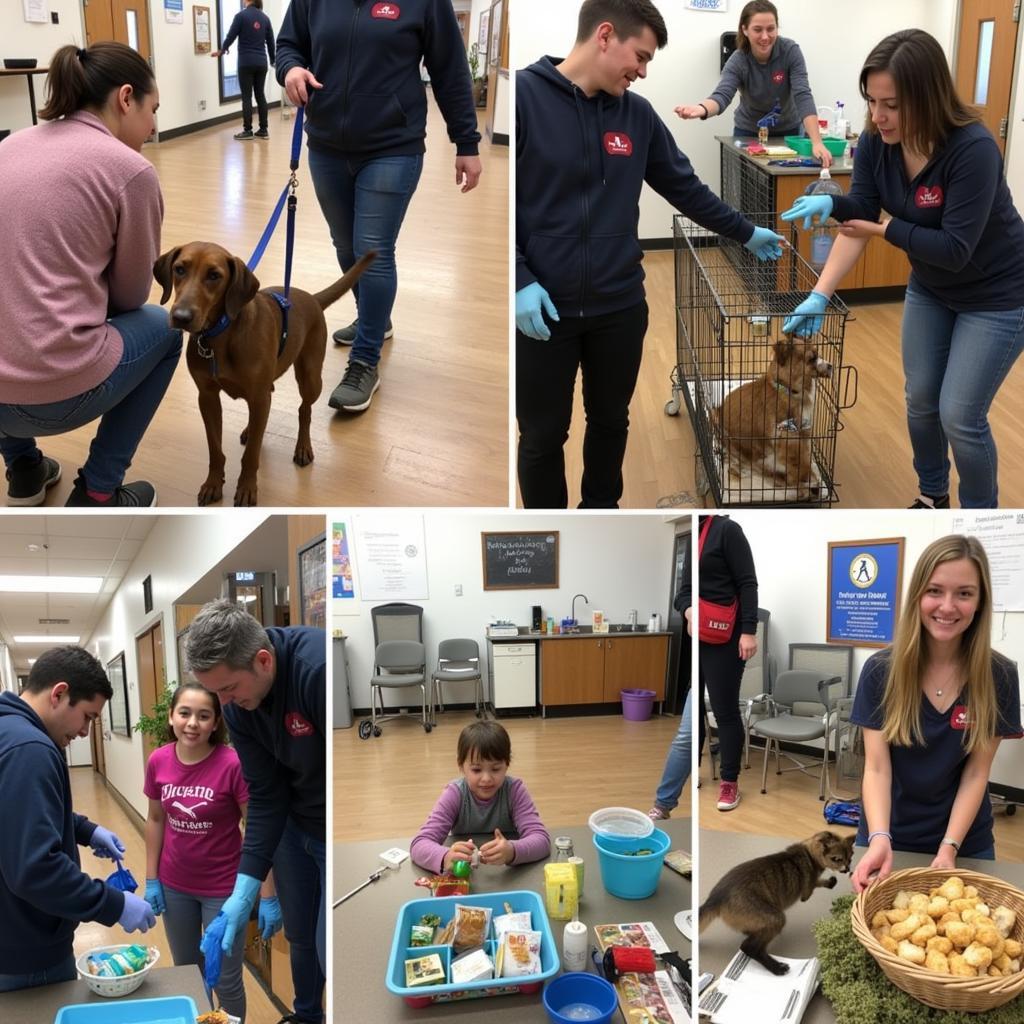Making the difficult decision to surrender a cat to the humane society is never easy. It’s often fraught with emotions, guilt, and uncertainty. However, understanding the process and recognizing that it’s sometimes the most responsible and compassionate option can bring peace of mind. This article provides a comprehensive guide to Humane Society Cat Surrender, offering support and resources to help you navigate this challenging time.
Understanding the Reasons for Cat Surrender
There are various reasons why individuals might find themselves needing to surrender a cat. surrendering a cat to the humane society can be due to unforeseen life changes, such as moving to a pet-restricted residence, developing allergies, experiencing financial hardship, or facing significant changes in family dynamics. Sometimes, behavioral issues in cats become unmanageable, posing risks to the household or the cat itself. In other cases, the owner’s health may decline, making it impossible to provide adequate care. Whatever the reason, acknowledging the need for rehoming is the first step towards finding the best solution for your feline companion.
The Humane Society Cat Surrender Process
The process of surrendering a cat varies slightly between different humane societies, but generally involves similar steps. Most organizations require an appointment, allowing them to prepare for the cat’s arrival and gather information about its history, temperament, and medical needs. This initial conversation also helps the staff assess the cat’s suitability for adoption and tailor its care accordingly. Be prepared to provide details about the cat’s age, breed, medical history, vaccination records, and any behavioral concerns.
Preparing Your Cat for Surrender
Preparing your cat for the transition can ease their stress. Maintain their regular routine as much as possible in the days leading up to the surrender. Pack familiar items, such as their favorite toys, bedding, and scratching post, to provide comfort in the new environment. If possible, transport the cat in a secure and familiar carrier to minimize anxiety during the journey.
Finding Alternatives to Surrender
While surrendering a cat to the humane society is a viable option, exploring alternative solutions can sometimes be beneficial. Reaching out to friends, family, or local rescue organizations might lead to a direct placement, avoiding the shelter environment altogether. Consider online adoption platforms and social media groups dedicated to rehoming pets. If behavioral issues are the primary concern, consulting a certified cat behaviorist can provide strategies for managing the challenges and potentially avoid the need for surrender. Remember, reaching out for support within your network or seeking professional guidance can make a significant difference.
Supporting Your Local Humane Society
Humane societies rely heavily on community support to provide care for surrendered animals. Donating funds, supplies, or volunteering your time can greatly impact their ability to operate effectively. Even small contributions can make a difference in ensuring that surrendered cats receive the necessary care and attention while awaiting their forever homes.
 Ways to Support Your Local Humane Society
Ways to Support Your Local Humane Society
What Happens After Humane Society Cat Surrender?
After you surrender your cat, the humane society staff will conduct a thorough medical evaluation and assess its temperament. The cat will receive necessary vaccinations, parasite treatments, and any required medical care. Once deemed healthy and ready for adoption, the cat will be placed in a suitable environment, where potential adopters can meet and interact with them. The humane society’s goal is to find a loving and appropriate forever home for every animal in their care. Surrendering your cat is a difficult but sometimes necessary act of love and responsibility. Knowing that they will be cared for and given a chance at a new beginning can provide solace during this emotional time.
FAQs about Humane Society Cat Surrender
- What is the cost of surrendering a cat? Many humane societies request a donation to help offset the costs of care, but the amount can vary. Some may waive the fee in specific circumstances.
- Can I visit my cat after surrendering it? Most humane societies do not allow visits after surrender to minimize stress on the animal and allow them to adjust to their new environment.
- What if my cat has medical issues? Humane societies are equipped to handle cats with various medical conditions, providing necessary treatments and care.
- How long does it take for a surrendered cat to be adopted? Adoption timelines vary depending on the cat’s age, breed, temperament, and the demand for specific types of cats.
- What happens if my cat isn’t adopted? Reputable humane societies are committed to finding homes for all adoptable animals. While euthanasia is a last resort, it may be considered in cases of severe medical or behavioral issues that compromise the cat’s quality of life.
- Can I surrender a feral cat? Most humane societies accept feral cats for Trap-Neuter-Return (TNR) programs, aiming to control the feral cat population humanely.
- How can I cope with the emotional distress of surrendering my cat? Allow yourself to grieve the loss of your companion. Remember that you made the best decision for your cat’s well-being, and seek support from friends, family, or pet loss support groups if needed.
Conclusion
Humane society cat surrender can be a heart-wrenching decision, but it can also be the most humane option for your beloved pet. Understanding the process, preparing your cat for the transition, and knowing they will be in caring hands can ease the burden of this difficult choice. By choosing humane society cat surrender, you are prioritizing their welfare and offering them a second chance at happiness. You might also consider reading more about specific humane societies like the dublin humane society or the garrard county humane society kentucky. Perhaps you’ve found a lost dog? Check out our resources on humane society found dog or the north iowa humane society mason city.
When you need support, contact us at Phone: 02043854663, Email: [email protected] or visit us at Khu 34, Bac Giang, 260000, Vietnam. We have a 24/7 customer service team.